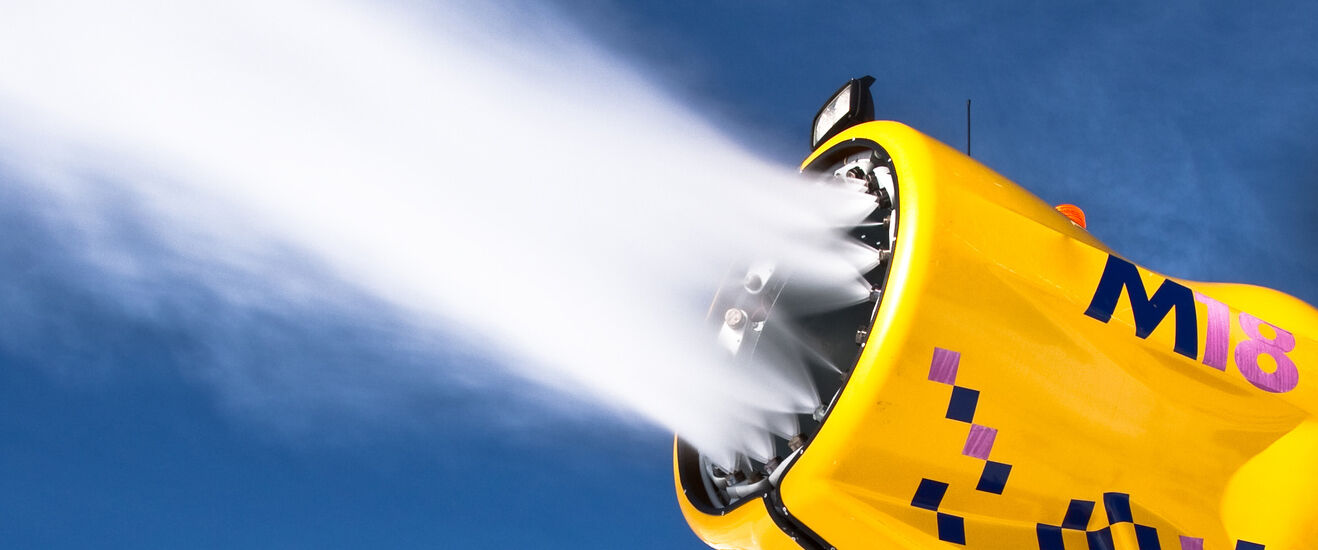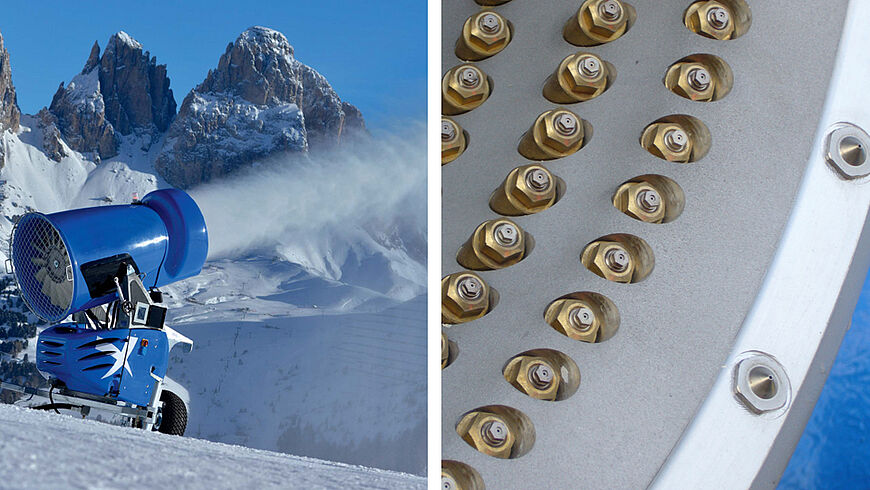Snowmaker with kaboom
Nowadays it is no longer decisive whether skiing takes place in November, December or even April: thanks to so-called snowmakers, most ski resorts are with snow guaranteed. Lechler nozzles make their very own contribution here and thus also play an important role on winter holiday days.

Thousands of Lechler nozzles are installed in snow cannons, whereby up to 200 snow guns can be used, depending on the ski area. A snow cannon with a diameter of one meter contains about 360 nozzles. They are fed from a collecting basin at slope level with collected rainwater or melted ice and snow. Cold and abrasive particles in the water mean the toughest conditions for the nozzles, which have to deliver a very good spray quality despite these adversities. Hardened or nickel-plated materials are used for example, and ruby inserts are also used.
 Snow gun with nozzle technology inside
Snow gun with nozzle technology insideNozzles are the most important factor for good artificial snow. With the help of ultra-fine atomizing twin-fluid nozzles, smallest water drops are firstly produced, which immediately freeze to ice. In the next step, the drops of further single-fluid nozzles accumulate on this so-called ice germ over the flight time and become snowflakes. A perfect adaptation of compressed air and water pressure to the ambient temperatures is a prerequisite for good snow.
The throwing distance of up to 40 metres ensures that the snow is evenly distributed on the slopes. Depending on the snow gun, hollow cone or flat jet nozzles are used. With propeller machines – better known as snow cannons – hollow cone nozzles (e.g. series 214/216) are used. Flat jet nozzles (e.g. series 632) are used for snow-making lances.